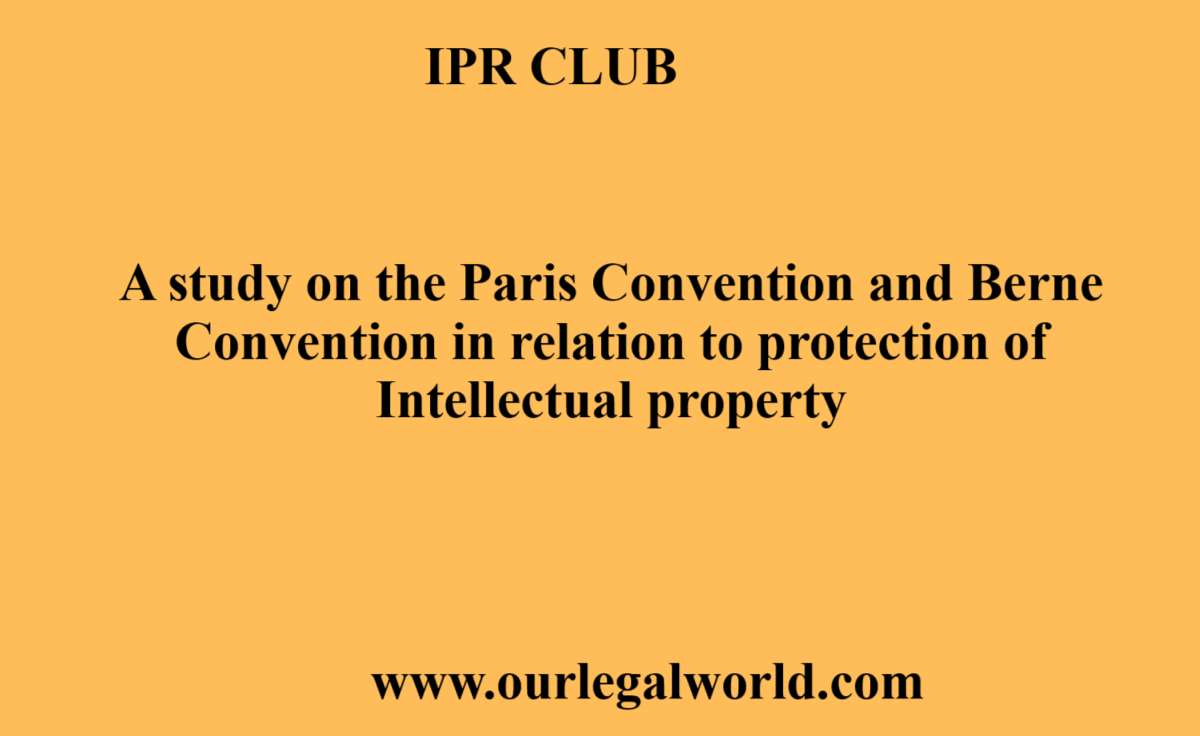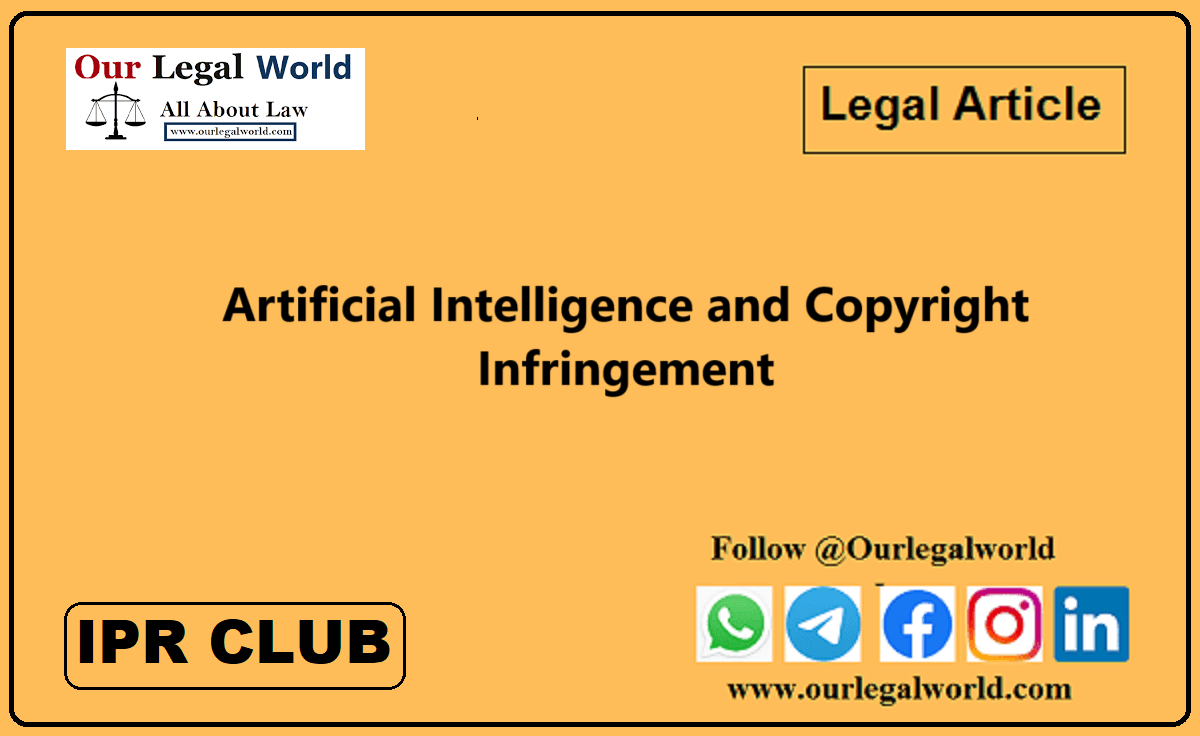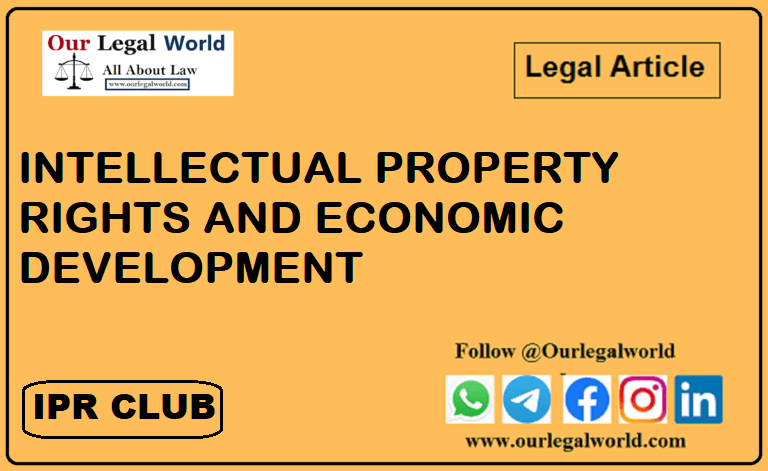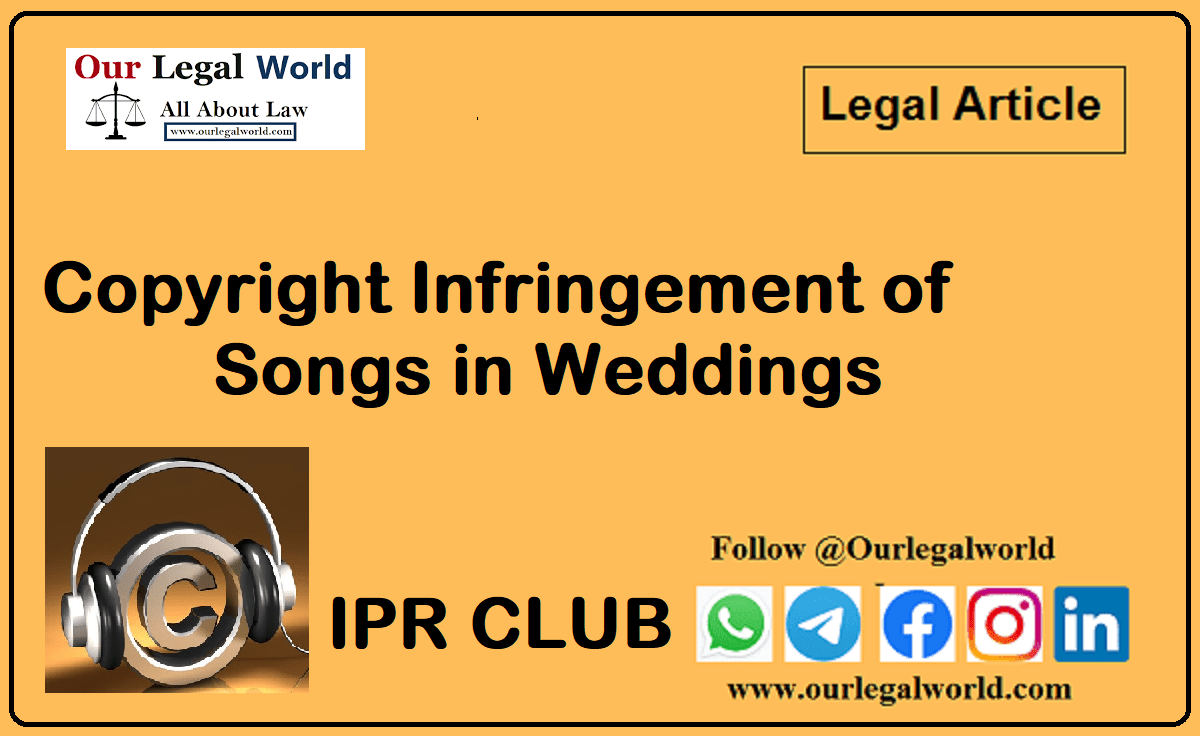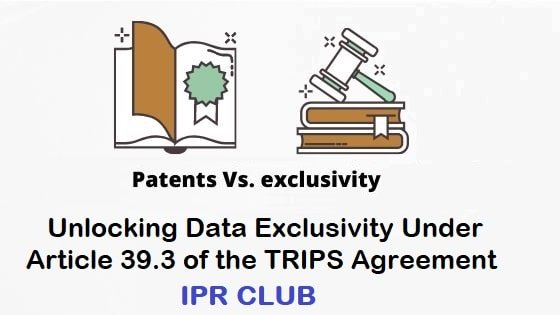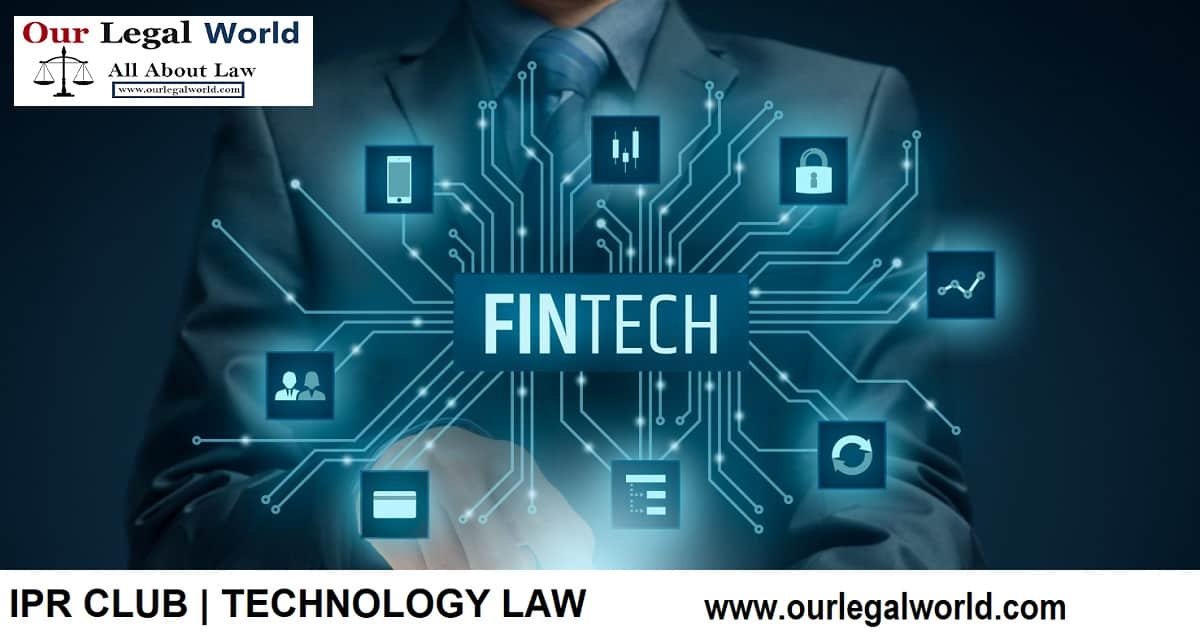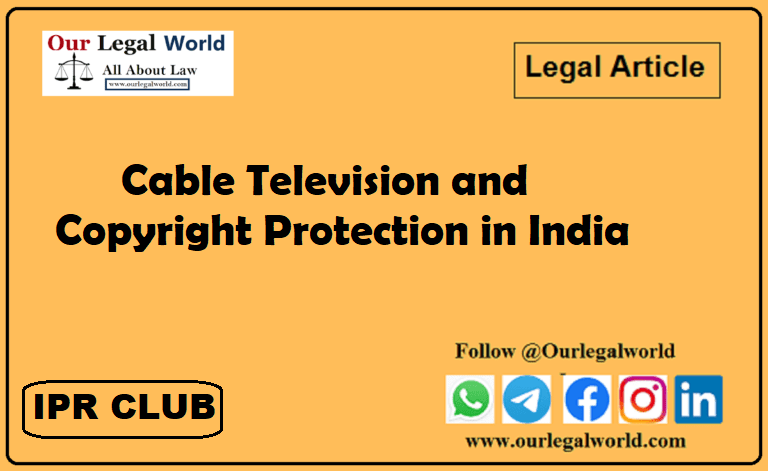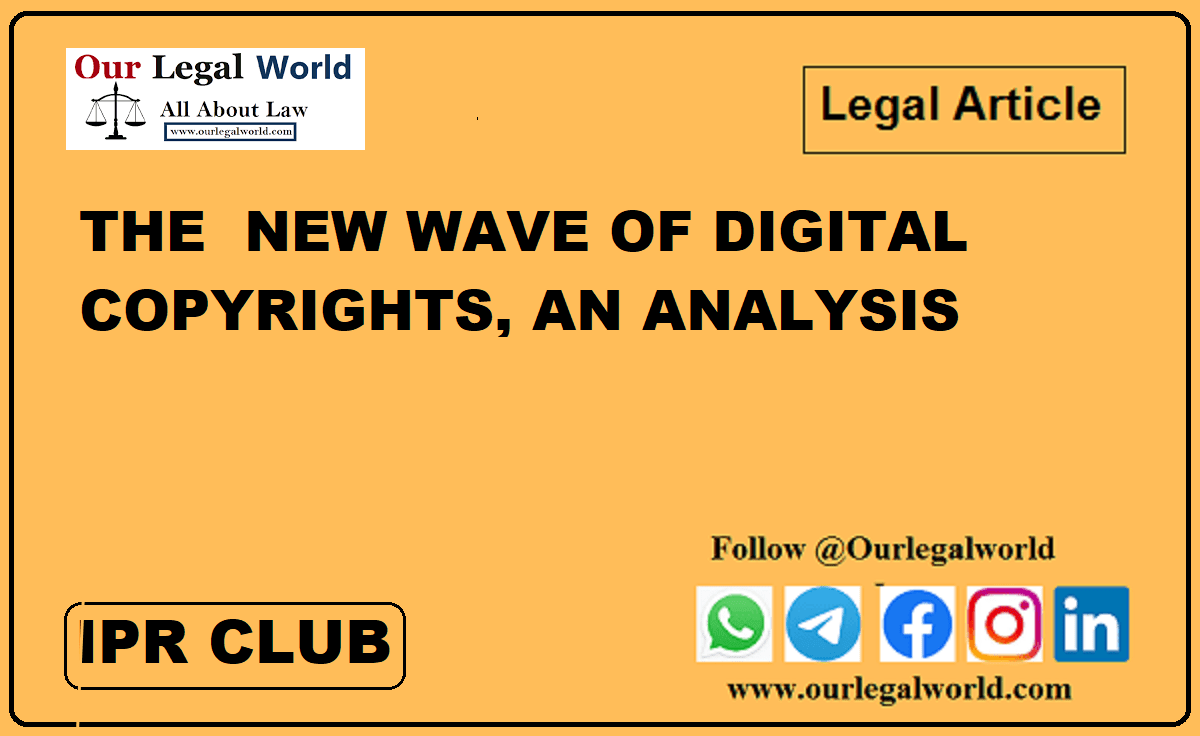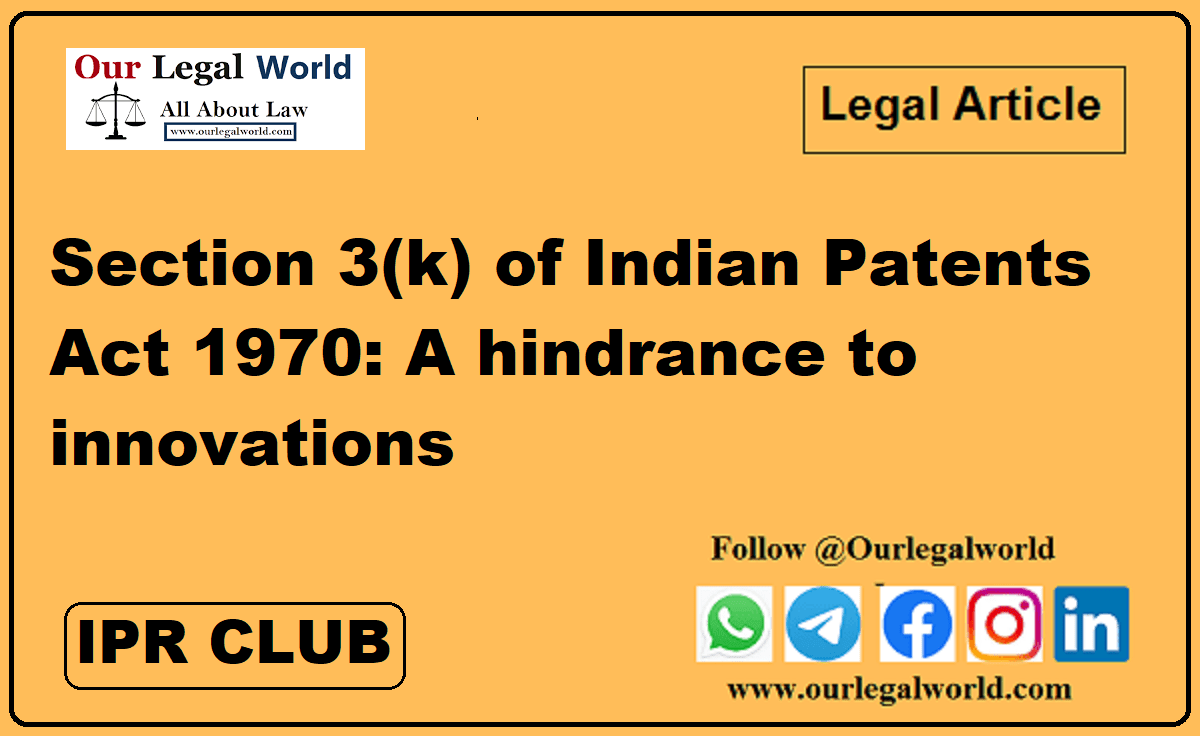International IPR
A study on the Paris Convention and Berne Convention in relation to protection of Intellectual property
A study on the Paris Convention and Berne Convention in relation to protection of Intellectual property To provide legitimacy and a streamlined regulatory mechanism for....
The Legal Challenges of Copyright Infringement by AI
The Legal Challenges of Copyright Infringement by AI Written by Sadhil arora, 2nd year [National Law University, Delhi] Introduction Progress has always been met with....
INTELLECTUAL PROPERTY RIGHTS AND ECONOMIC DEVELOPMENT
INTELLECTUAL PROPERTY RIGHTS AND ECONOMIC DEVELOPMENT Rishiraj Chandan {NLU Delhi} Abstract: This paper provides a concise overview of the relationship between Intellectual Property Rights (IPR) and....
Copyright Infringement of Songs in Weddings:- IPR Club
Copyright Infringement of Songs in Weddings Written by Shubhra Pallavita Satpathy [KIIT SCHOOL OF LAW, BHUBANESWAR] Introduction Consider a film in which there is no....
Unlocking Data Exclusivity Under Article 39.3 of the TRIPS Agreement
Unlocking Data Exclusivity Under Article 39.3 of the TRIPS Agreement The intricate world of intellectual property and global trade has witnessed the emergence of a....
From Borders to Bytes: How International Law Shapes the Fintech Law
From Borders to Bytes: How International Law Shapes the Fintech Law “Fintech” is a term derived from combining “financial” and “technology.” It encompasses a wide....
Cable Television and Copyright Protection in India
Cable Television and Copyright Protection in India:- IPR Club Written by Ekanandanayaka S [NUALS] Introduction: Cable television is a type of television transmission system that....
PROTECTION OF ICONS OF MOBILE APPLICATIONS UNDER INTELLECTUAL PROPERTY LAWS IN CONTEXT TO ITS RELEVANCE IN THE DIGITAL AGE
PROTECTION OF ICONS OF MOBILE APPLICATIONS UNDER INTELLECTUAL PROPERTY LAWS IN CONTEXT TO ITS RELEVANCE IN THE DIGITAL AGE Written by Utkarsh Singh Kachhawaha INTRODUCTION....
THE NEW WAVE OF DIGITAL COPYRIGHTS, AN ANALYSIS
THE NEW WAVE OF DIGITAL COPYRIGHTS, AN ANALYSIS Written by: Evelyn Jeniffer.S Copyright exists in the original work of authorship. With changes in time and....
Section 3(k) of Indian Patents Act 1970: A hindrance to innovations
Section 3(k) of Indian Patents Act 1970: A hindrance to innovations Written by Manik [NLU, Jodhpur] Introduction Section 3 of the Patents Act, 1970 (hereinafter....
